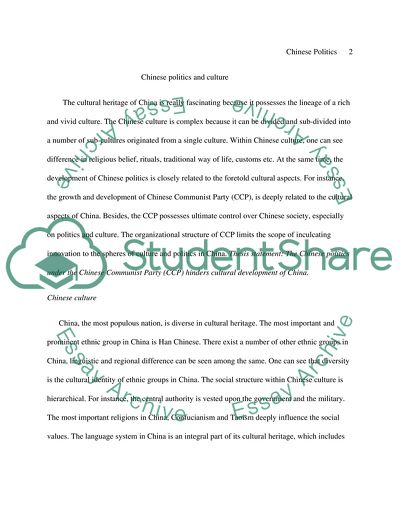Cite this document
(Chinese Politics and Culture Essay Example | Topics and Well Written Essays - 2500 words, n.d.)
Chinese Politics and Culture Essay Example | Topics and Well Written Essays - 2500 words. Retrieved from https://studentshare.org/culture/1739839-chinese-politics-and-culture
Chinese Politics and Culture Essay Example | Topics and Well Written Essays - 2500 words. Retrieved from https://studentshare.org/culture/1739839-chinese-politics-and-culture
(Chinese Politics and Culture Essay Example | Topics and Well Written Essays - 2500 Words)
Chinese Politics and Culture Essay Example | Topics and Well Written Essays - 2500 Words. https://studentshare.org/culture/1739839-chinese-politics-and-culture.
Chinese Politics and Culture Essay Example | Topics and Well Written Essays - 2500 Words. https://studentshare.org/culture/1739839-chinese-politics-and-culture.
“Chinese Politics and Culture Essay Example | Topics and Well Written Essays - 2500 Words”, n.d. https://studentshare.org/culture/1739839-chinese-politics-and-culture.


